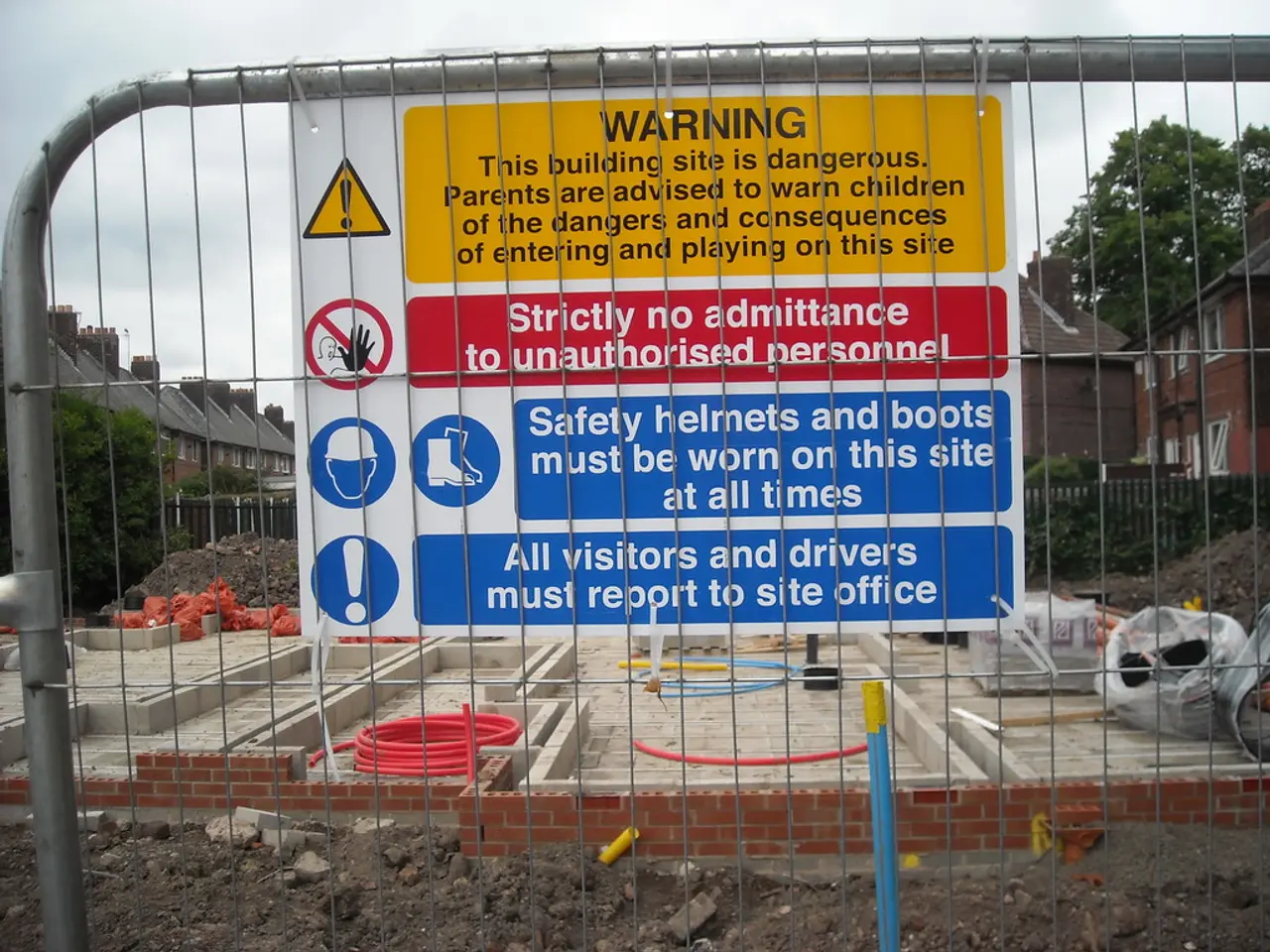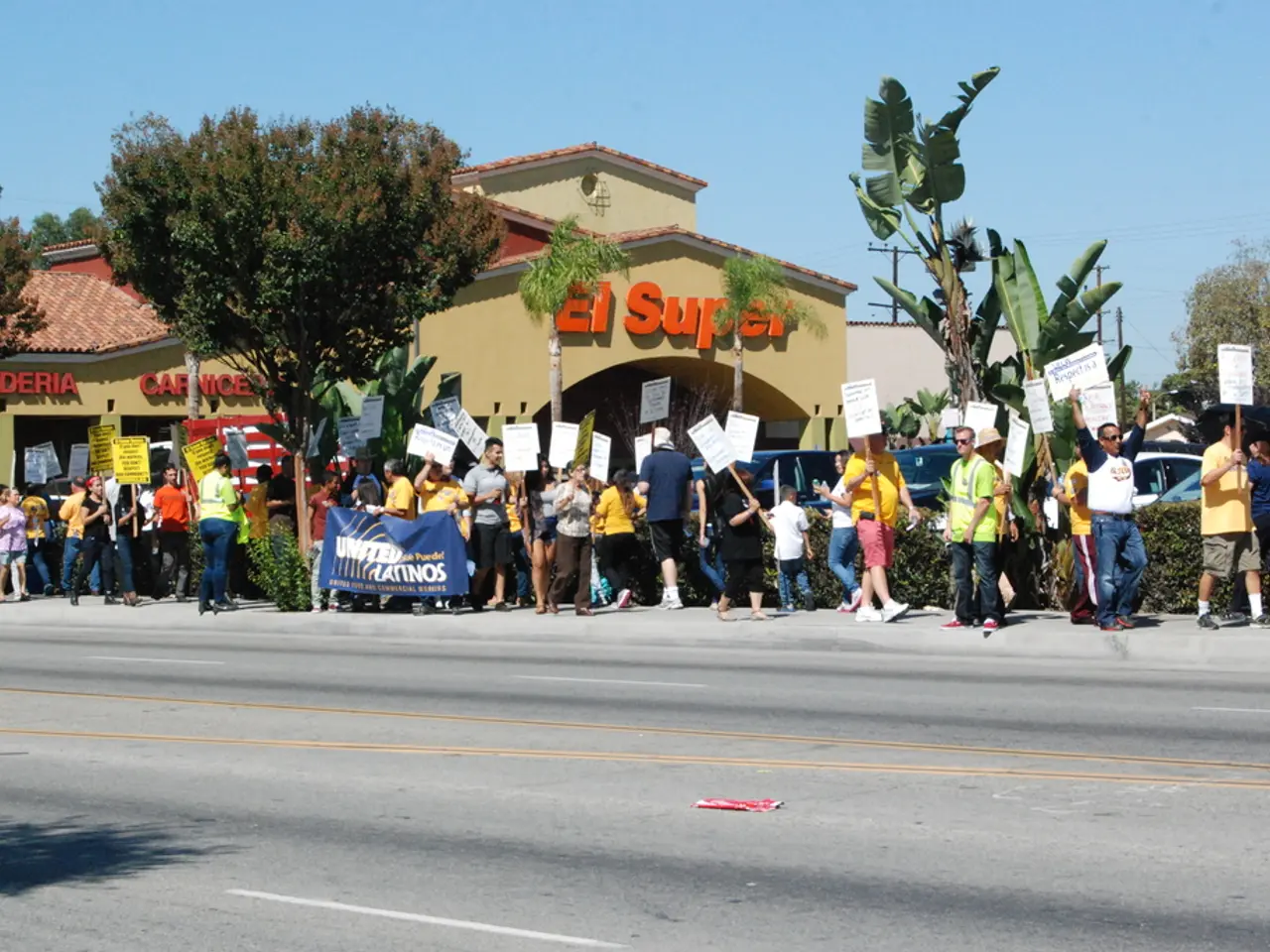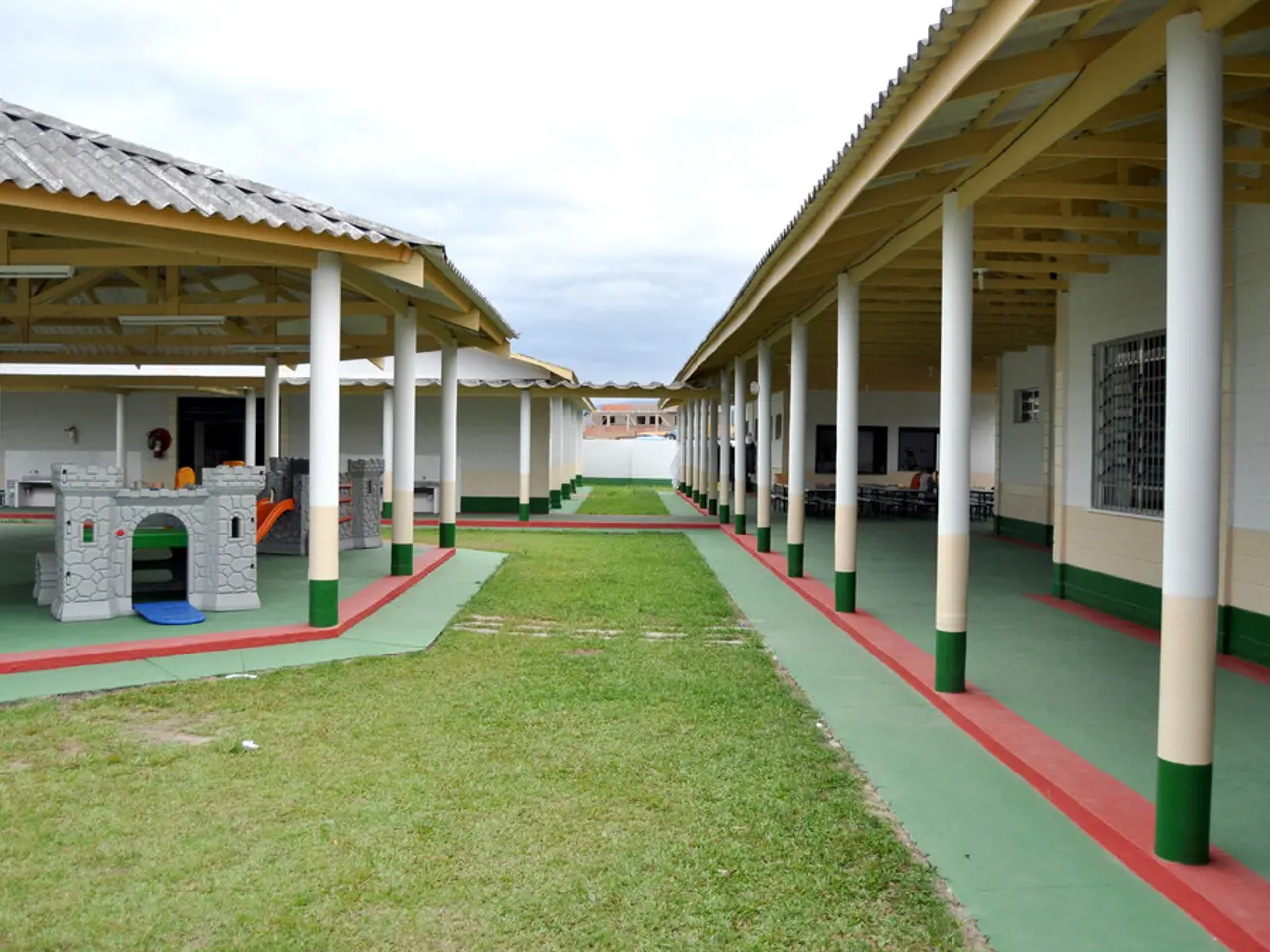Intensifying Pressure on Israel: Germany Delays Imposition of Sanctions
In recent developments, the international community is calling for urgent action to address the humanitarian crisis in the Gaza Strip and to revive the long-term goal of a peaceful two-state solution between Israel and Palestine.
Israel has reportedly carried out attacks in Syria's southern province of Suwaida, targeting armed groups and vehicles belonging to Bedouin clans and pro-government militias. However, a spokesperson for the Israeli army has stated they had no knowledge of any attacks when asked about the reported incidents in Syria.
The crisis in Gaza is heading towards a potential famine, according to international food security experts. Aid workers consider the airdrop of aid goods ineffective and expensive, fearing it could injure or kill people on the ground. Instead, they advocate for unimpeded aid delivery through established UN-coordinated mechanisms and insist on stopping the siege and aid obstructions.
The humanitarian priority is a durable ceasefire and full, guaranteed humanitarian aid access coordinated by the UN and partners. Diplomatic calls are increasing for large-scale aid expansion and the resumption of peace talks, especially from influential countries and U.S. lawmakers. For example, a bipartisan group of 44 U.S. senators called on the administration to enhance aid and diplomacy following stalled ceasefire talks, highlighting the worsening crisis and civilian casualties.
The two-state solution remains a long-term diplomatic goal but is currently overshadowed by the acute crisis. Historically, multilateral actors including the UN, the Quartet (U.S., EU, Russia, UN), and Arab states have proposed frameworks for two states living side by side, but ongoing violence and lack of sustained negotiations have stalled progress.
British Prime Minister Keir Starmer has threatened to recognize the state of Palestine if Israel does not take significant steps to end the dire situation and commit to a long-term, sustainable peace. The German government has called on the Israeli government to change course, stating that the current Israeli policy is moving in the opposite direction and does not serve Israel's long-term security interests.
Israeli Prime Minister Benjamin Netanyahu sees the terrorist organization Hamas as the greatest obstacle to the conclusion of a ceasefire agreement. British Prime Minister Starmer has stated that the demands on Hamas remain: it must release all hostages, agree to a ceasefire, accept that it will not play a role in governing the Gaza Strip, and disarm.
Two German military aircraft have taken off to provide aid to the population in Gaza as part of international efforts. The IPC initiative for analyzing food crises has stated that immediate action must be taken to stop hostilities and enable unhindered, large-scale, life-saving humanitarian aid to prevent further deaths and catastrophic human suffering.
The EU Commission had recommended partial suspension of Israel's participation in the research funding program Horizon Europe. Seventeen countries at the UN conference have demanded concrete steps towards ending the conflict. The document obtained by the German Press Agency condemns the Hamas massacre in Israel on October 7, 2023, which sparked the war, and states that the war in Gaza must end as a condition for achieving the Two-State Solution, to which Israel must commit.
Thus, while urgent operational and tactical solutions focus on ending violence and addressing starvation and displacement, broader international efforts to revive the two-state solution are still needed but largely deferred until stability returns. The international community continues to work towards a peaceful resolution for both Israelis and Palestinians.
[1] Humanitarian groups emphasize unimpeded aid delivery for Gaza
[2] Gaza crisis: What's behind the new Israeli-Hamas fighting?
[3] Gaza crisis: How aid is reaching the enclave
[4] U.S. senators urge Biden to boost aid, diplomacy for Gaza ceasefire
- Amidst the ongoing Gaza crisis, humanitarian groups are urging for unimpeded aid delivery, advocating for settled UN-coordinated mechanisms to ensure safe and effective aid distribution.
- As the new Israeli-Hamas fighting persists in the Gaza Strip, political analysts are shedding light on the underlying policy-and-legislation dynamics and the role they play in the war-and-conflicts between the two parties.






